How To Get Rid Of Pink Eye: 8 Natural Remedies
Don’t be bothered by this eye infection as you equip yourself with natural ways to treat it.
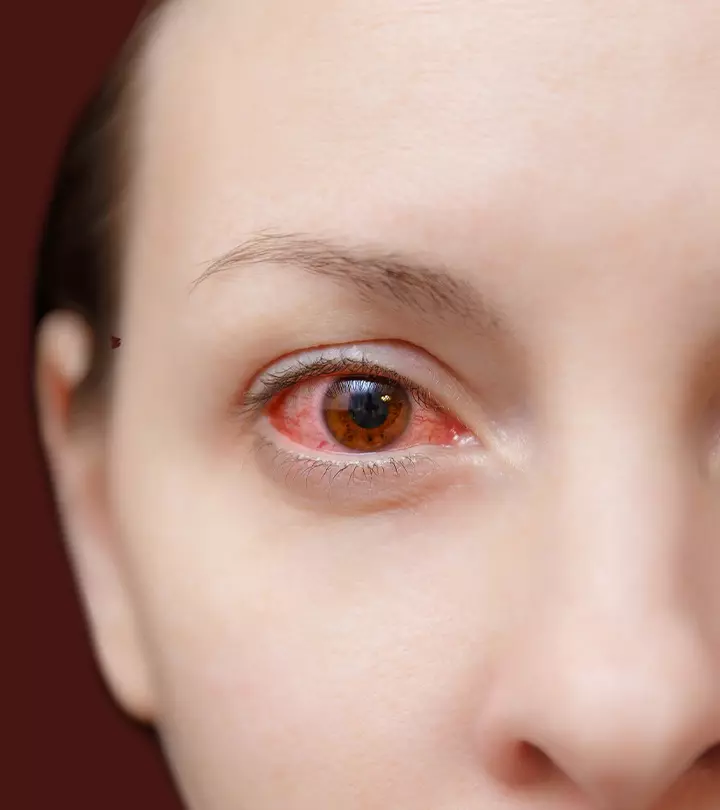
Image: Shutterstock
Pink eye is one of the most common eye infections, with between 3 to 6 million children and adults affected each year in the US. So if you have contracted this infection, know that you are not alone. Read on to find out how to get rid of pink eye and some important measures you can take to prevent the further spread of this infection.
In This Article
What Is Pink Eye?
Pink eye or conjunctivitis refers to a condition in which the conjunctiva is inflamed. The conjunctiva is the clear tissue in your eyes that line the inner surface of the eyelids and the outer surface of the white part of the eyes to keep them moist. When you contract pink eye, the swollen blood vessels in the affected eye become prominently visible, which gives it a pinkish or reddish appearance.
You may get pink eye in one or both of your eyes, depending on what’s causing it.
The eye infection may be triggered by a virus or bacteria. In other cases, you may get pink eye from being exposed to allergens or irritants. It is important to note that viral or bacterial conjunctivitis is highly contagious, which means that you may get it from an infected person (1).
Lissa Kelner, a blogger describes her experience of getting pink eyes and how she managed it. She shares that she got viral pink eyes after coming from a trip and her eyes hurt a lot. She further stated, “This one is viral, drastically affects your vision, highly contagious (especially to you), and inordinately painful. I was told it would take 21 days to fully heal. Twenty-one days…..and, I couldn’t see (i).”
Let’s talk about the causes of pink eye so that you can understand the best way to get rid of it.
Key Takeaways
- Pink eye or conjunctivitis is an inflammation caused by bacterial or viral infections or allergies.
- Applying a warm compress, using artificial teardrops, and maintaining good hygiene may help relieve its symptoms.
- You can prevent pink eye by using clean contact lenses and identifying common allergens.
Causes Of Pink Eye
- Bacterial Infection
Children are more prone to contracting pink eye through bacterial infection. Adults may also contract this type of infection through unclean contact lenses or from touching their eyes with unwashed hands. Some common bacteria that cause conjunctivitis are Haemophilus influenzae, Staphylococcus aureus, Pseudomonas aeruginosa, and Streptococcus pneumonia.
Bacterial conjunctivitis may show up as more red than pink eye and cause other symptoms like pus and fluids. It may also be accompanied by an ear infection. Generally, both eyes are affected by bacterial conjunctivitis within 48 hours (2).
- Viral Infection
Adenovirus is responsible for most cases of viral pink eye, but herpes simplex, varicella zoster1, and a few other coronaviruses may also cause it. It is common for viral conjunctivitis to affect one eye first and the second eye after 48 hours. The eyes are generally less bloodshot and appear pinkish when it is viral conjunctivitis. Pus formation is also much less common in this type of pink eye. It may cause other symptoms like a cold or an upper respiratory tract infection (3).
A study conducted on 301 subjects with COVID-19 found that 11.6% were diagnosed with acute conjunctivitis. Out of this, 13 cases had conjunctivitis before hospital admission and 10 cases were diagnosed with conjunctivitis during examination.
- Allergic Reaction
An allergic reaction to allergens like pollen and raw cotton can trigger the release of histamines and other inflammatory substances. This can lead to several symptoms like itching, burning, and inflammation in the eyes (4).
When you have allergic conjunctivitis, both your eyes may be affected by the inflammation. Other symptoms include sneezing, nasal discharge, and severe tearing up of the eyes (5).
- Exposure To Irritants
You may get pink eye if your eyes are exposed to harsh chemicals or other irritants like dirt, smoke, or pool chlorine. You may also irritate your eyes further by flushing them excessively to get the irritant out. This kind of conjunctivitis, characterized by watery eyes and mucus discharge, clears up on its own most of the time. In case it persists, contact a doctor as it may be indicative of damage or the continued presence of a foreign particle in your eye (1).
Depending on the underlying cause of your pink eye, you may use remedies to get the best results. Let’s look at what you can do to get some relief.
Natural Remedies To Cure Pink Eye
It is important to understand that there is no cure for viral or allergic pink eye, and bacterial pink eye treatment may involve the use of antibiotics (6). However, these home remedies can make dealing with pink eye easier and more comfortable as you ride it out.
- Use Artificial Tear Drops
There are various home remedies for red eyes that can help alleviate symptoms and reduce discomfort. You can use over-the-counter artificial tears in the form of eye drops to get relief from the burning sensation in your eyes. This is especially useful if you have viral, allergic, or irritant-induced pink eye. Tacrolimus, 1% and 2% cyclosporine A are the two types of eye drops that are most effective (3).
 Did You Know?
Did You Know?- Apply A Warm Compress
Soak a clean cloth in warm water, squeeze out the excess, and hold it over your affected eye. You can keep your eye closed and let the moist cloth rest on it till it is cool to touch. Repeat the process as many times as you want throughout the day. This can soothe your eyes and help clear any mucus or discharge build-up in your eyes. Take care not to bring the cloth into contact with your unaffected eye or anybody else to prevent the infection from spreading (3).
- Avoid Allergens And Use Antihistamines
Withdrawing from the environment where you know the allergen is present is the best thing you can do to heal your condition. You can also use eye drops containing antihistamines to soothe the inflammation and irritation in your eyes (7).
- Don’t Wear Contact Lenses Or Eye Makeup
Both of these can cause further irritation to your already inflamed and irritated eyes. Switch to wearing glasses if you have long- or short-sightedness and refrain from using any kind of makeup around your eyes.
- Take Plenty Of Rest
Keep your eyes closed and get lots of rest to get relief from the pain in your eyes. You may want to wear dark shades or sunglasses in the daytime to get relief from sensitivity to light.
- Maintain Good Hygiene
There are a few steps you can take to make sure that you don’t spread pink eye to your unaffected eye or worsen your condition:
- Throw away your contact lenses if you can afford to or clean them thoroughly with the lens solution.
- Dispose of any eye makeup that you suspect is the culprit, especially if you have viral or bacterial conjunctivitis.
- Wear glasses instead of contact lenses.
- Change your pillowcase every day.
- Don’t touch your eyes and then touch other surfaces without washing your hands with soap and water thoroughly first.
 Quick Tip
Quick Tip- Use Castor Oil
Castor oil is another popular remedy you can use for pink eye. Anecdotal evidence suggests that Egyptian doctors used castor oil to prevent eye irritation in 1500 BC. However, there is no scientific evidence that confirms that castor oil may help you relieve the symptoms of pink eye or treat it. Therefore, it is recommended not to put the oil directly into your eyes without the recommendation of a doctor.
- Use Apple Cider Vinegar
Some people suggest that you can also use apple cider vinegar for pink eye by diluting it with water and applying it to your closed eye. However, there is no scientific evidence that doing so can provide any relief from the irritation that comes with pink eye syndrome. In fact, research recommends that even diluted ACV can lead to skin irritation (9).
Conjunctivitis that does not lead to more serious conditions goes away on its own when given time and care. It is also highly preventable if you are careful. Scroll down to the next section to get some simple tips that can help you keep pink eye at bay.
How To Prevent Pink Eye
You can take certain measures to lower your chances of contracting conjunctivitis. Some of them are:
- Get vaccinated against cold and flu viruses to lower your risk of getting viral conjunctivitis.
- Clean your contact lenses regularly.
- Do not use lenses or eye makeup belonging to other people to reduce your chances of bacterial conjunctivitis.
- Identify common allergens that cause adverse reactions in your body and stay away from them.
- Regularly rinse your eyes with cold water after using products containing chemicals that may irritate your eyes and after swimming.
- Avoid going to the swimming pool if you hear of local conjunctivitis cases amongst swimmers.
- Do not touch your eyes without washing your hands thoroughly.
No matter what you do or don’t do, there is still a chance that you may end up with pink eye. But, not every case of bloodshot eyes is conjunctivitis. Read the next section to understand when seeking medical attention is a must.
When Should You See A Doctor?
Get in touch with an eye doctor (ophthalmologist) or your general physician if you experience any of the following symptoms along with pink eye:
- Increased light sensitivity
- Severe pain
- Difficulty in seeing clearly or blurred vision
- Extreme pus or yellow dischargefrom your eye
- Worsening of pink eye symptoms after a week of home care
Now that you know how to get rid of pink eye, you must be extra careful not to let it spread from one eye to the other. Avoiding frequent touching, rubbing, or wiping is important to check the infection. Washing your hands frequently, and not sharing common pilows, linen, towels, and other personal items is key. Other than the home remedies mentioned above, eye drops and antibiotics may also be required for faster recovery. However, if things seem to be getting worse, or your vision seems to be getting affected, you should consult a doctor at the earliest.
Frequently Asked Questions
Is pink eye airborne?
Yes, you can contract pink eye through the air via coughing or sneezing.
Is pink eye from poop?
Yes, the virus or bacteria in your fecal matter may cause pink eye. If your hands contain fecal matter and it touches your eye, you may develop pink eye.
What are the stages of pink eye?
The symptoms of pink eye include pink or red eyes, pain, itching, swollen conjunctiva, burning or irritation (1).
Can you get pink eye from a pillowcase?
Yes, you can contract pink eye from a pillowcase if it has been touched by the infected person.
Is pink eye worse at night?
Yes, the fluid may build up while your eyes are closed at night. This may result in your eyes crusting shut. You can use eye drops or medications prescribed by your doctor to manage the symptoms of pink eye.
Learn how to treat pink eye (conjunctivitis) in this video. Discover tips to not be contagious, alleviate painful symptoms, like itching and inflammation, and promote healing for a quick recovery from this common eye condition. Click the video for more.
Personal Experience: Source
StyleCraze's articles are interwoven with authentic personal narratives that provide depth and resonance to our content. Below are the sources of the personal accounts referenced in this article.
(i) What I learned from Pink Eyehttps://lisakellner.medium.com/what-i-learned-from-pink-eye-5fa69d47f793
Read full bio of Sanchari Bhattacharya
Read full bio of Arshiya Syeda
Read full bio of Dipti Sharma




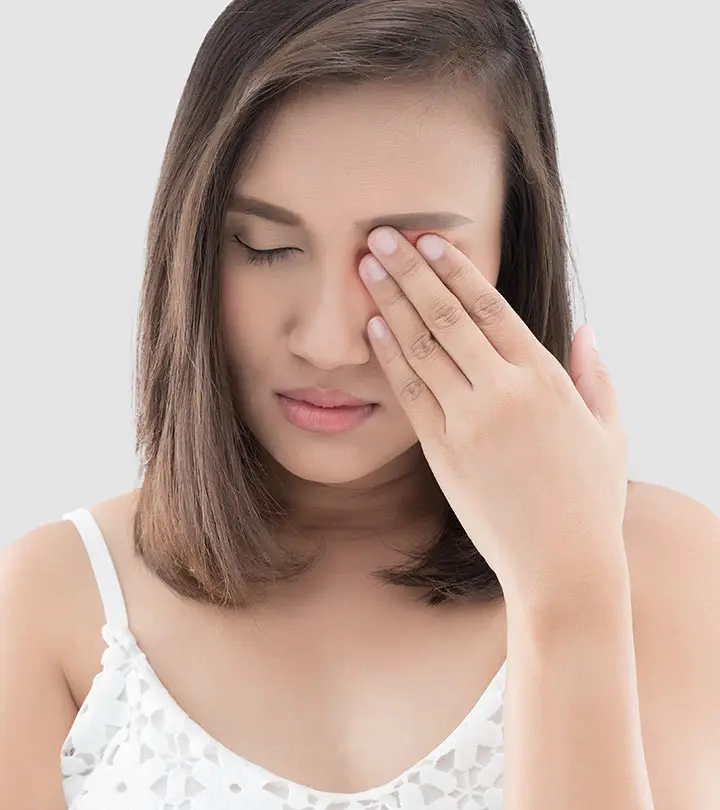
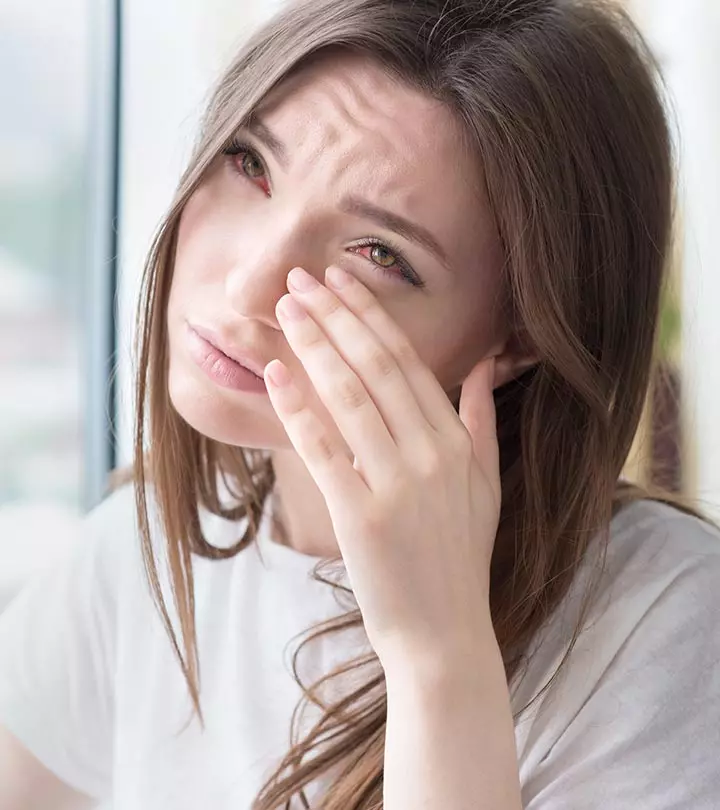

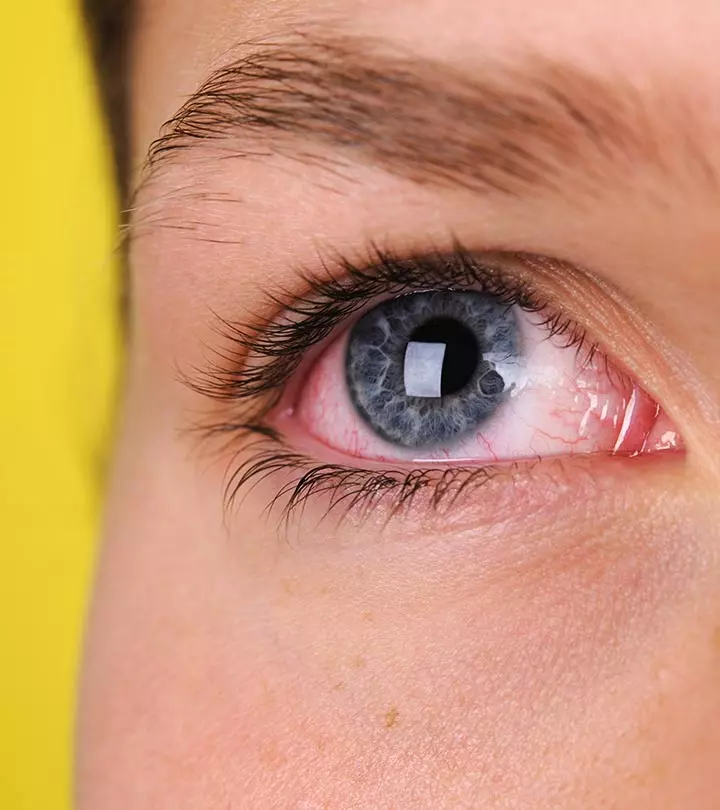



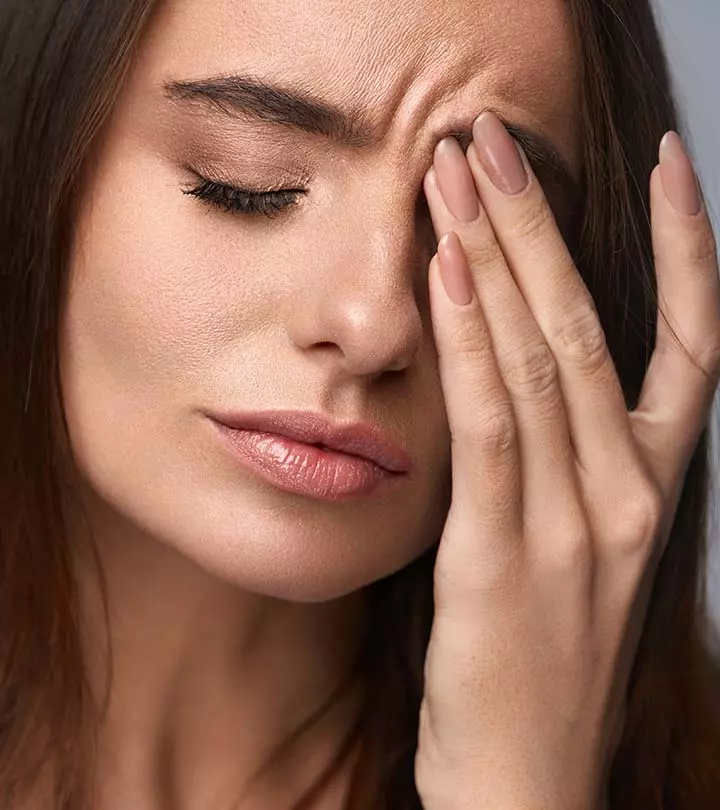



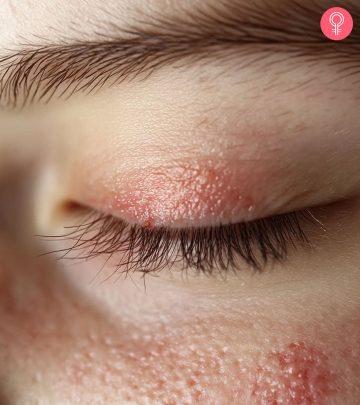



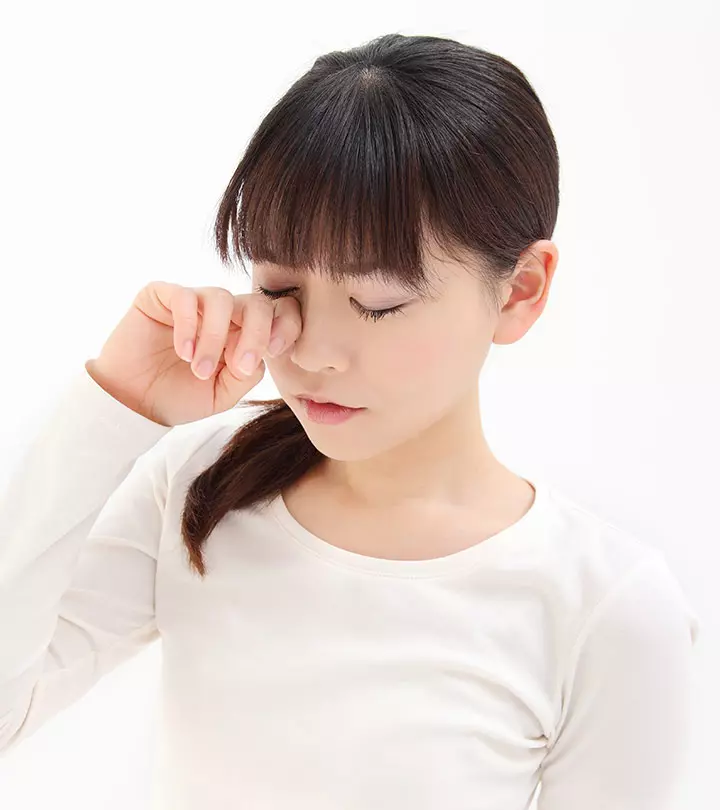



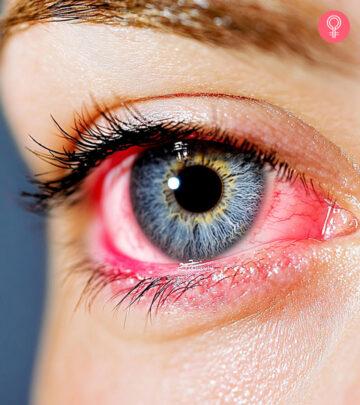
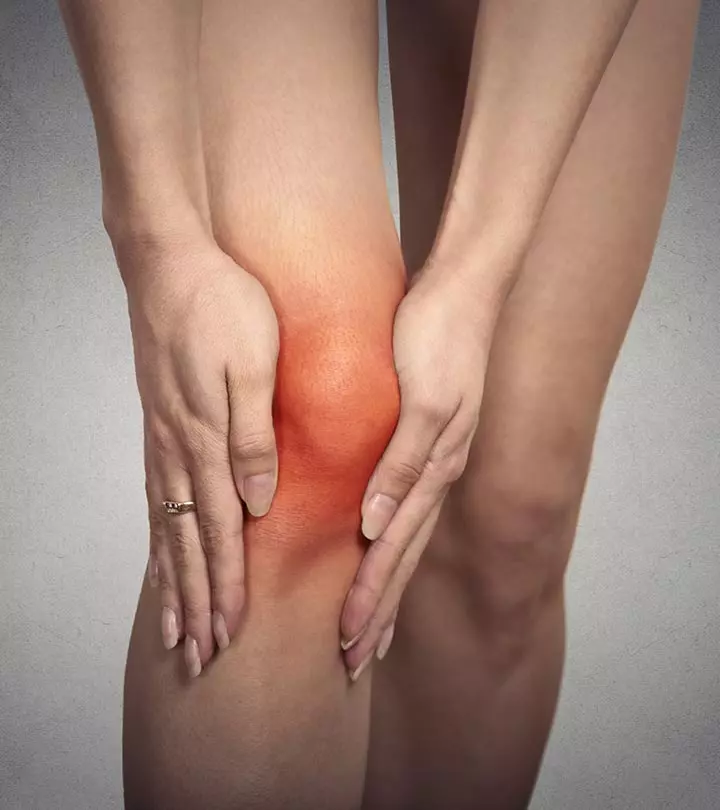
Community Experiences
Join the conversation and become a part of our empowering community! Share your stories, experiences, and insights to connect with other beauty, lifestyle, and health enthusiasts.